Last-Minute NYC Holiday Gift Guide 🎁
We’ve created a holiday gift guide with presents for the intrepid New Yorker that should arrive just in time—

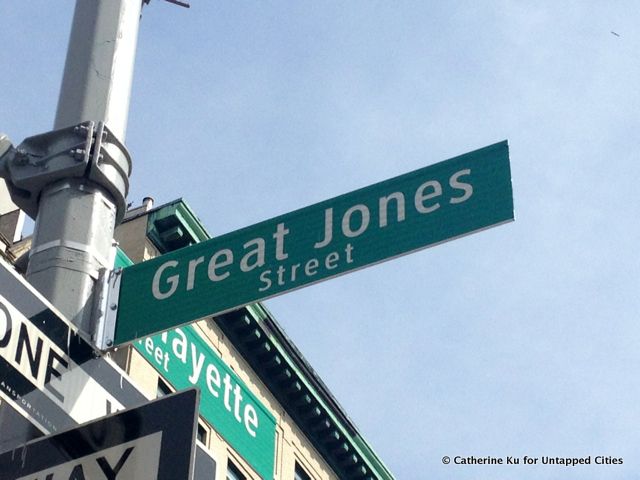
Looking at a map of the East and West Village around Washington Square Park, the name “Jones” seems to jump out more than once. There’s Jones Street, a single block that links Bleecker and West 4th Streets. Then there’s Great Jones Street, a stretch of East 3rd Street from Broadway to the Bowery. Jones was named after a doctor and Great Jones was named for a lawyer. True to its name, Great Jones runs one block further than Jones. Even today, it’s hard to tell which one really is “greater” than the other, and the centuries-long debate supposedly has roots in a family dispute.
In 1789, a prominent New York lawyer Samuel Jones donated a stretch of land in the East Village to the city. Nothing comes without a cost, however, as Jones stipulated that any street running through the property had to be named after him. (It seems he was no different from the many other upper-class city residents who liked to toot their own horns). The city used the land to complete 3rd Street, but true to Jones’ wishes, it named that two-block stretch after him.
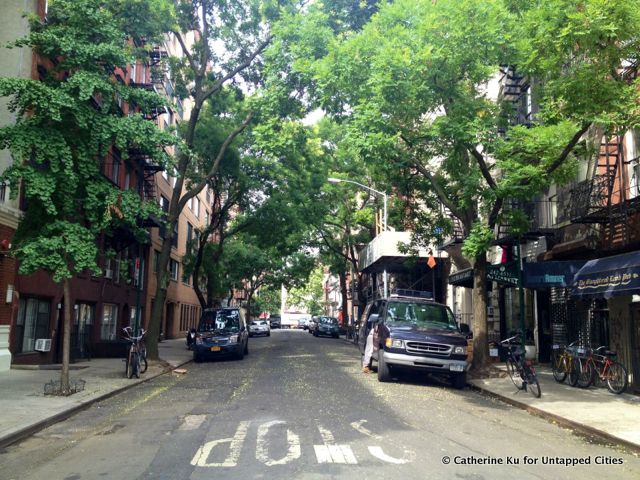
Jones Street was featured on the album cover of Bob Dylan’s Freewheelin‘.
There was a problem, however: Jones is a common name, after all, and there was already another Jones Street in New York, just a few avenues away. Ironically, this street was named after Samuel Jones’ brother-in-law, Dr. Gardiner Jones. After much debate and what must have been some tense family dinners, both men refused to budge. Eventually, Samuel Jones “relented” and humbly called his street “Great Jones.” (In an alternative to the family drama, the New York Times says Great Jones received its name because it was wider than most streets at the time.)
The Times also reports that in the early nineteenth century, Great Jones was one of the most prestigious streets in the city, and was even home of then-mayor Philip Hone. In the following decades, however, the wealthy moved uptown and by the late 1880’s, the area was populated by craftsmen of goods like wagons, hats and coffins. Today, Great Jones Street is included in the NoHo Historic District Extension by the NYC Landmarks Preservation Commission for the area’s Romanesque, Renaissance and Classical Revival architecture.
But Great Jones Street’s influence extends beyond its architectural features and etymological origins. The word “jonesin(g)” (an intense craving for a drug) is rumored to have originated from the addicts that frequented Great Jones Alley (just off Great Jones Street, parallel to Lafayette Street) in the 1960’s.
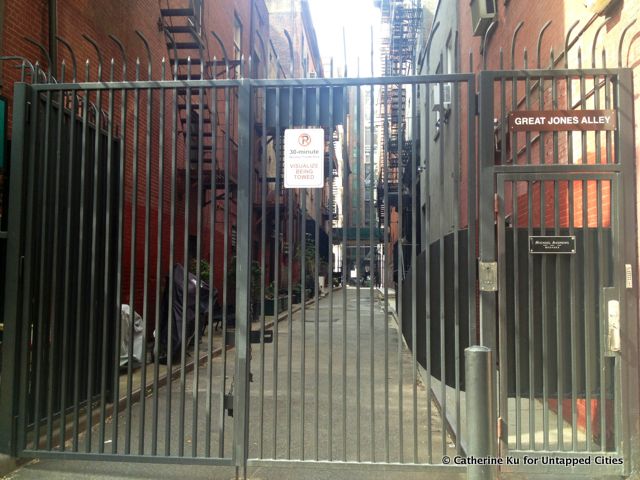
This rumor may not be too far off, as Great Jones Street has seen its share of illegal activities. According to Herbert Asbury’s book Gangs of New York (and confirmed by the Greenwich Village Society for Historical Preservation), 57 Great Jones Street was once the headquarters for gangster Paul Kelly. Indeed, a November 1905 New York Times article reports the murder of a man in a fight at Paul Kelly’s saloon “Little Naples” on 57 Great Jones.
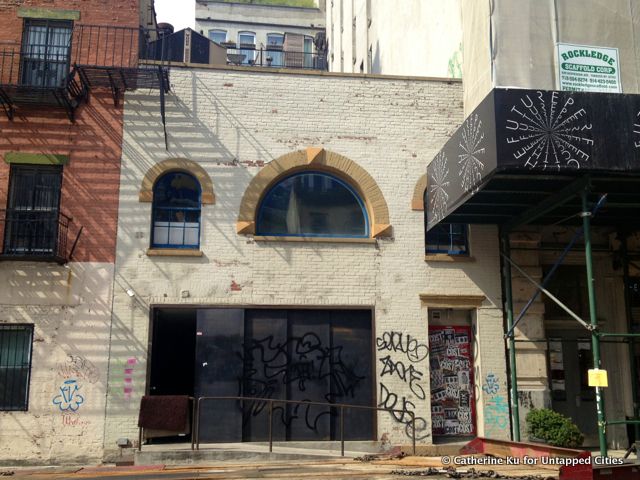
Today, 57 Great Jones Street bears some scars of its gangster past.
More than 80 years later, 57 Great Jones once again saw an untimely death when prominent artist Jean-Michel Basquiat overdosed on cocaine and heroin at his studio there. Incidentally, the 57 Great Jones space was leased to Basquiat by owner Andy Warhol.
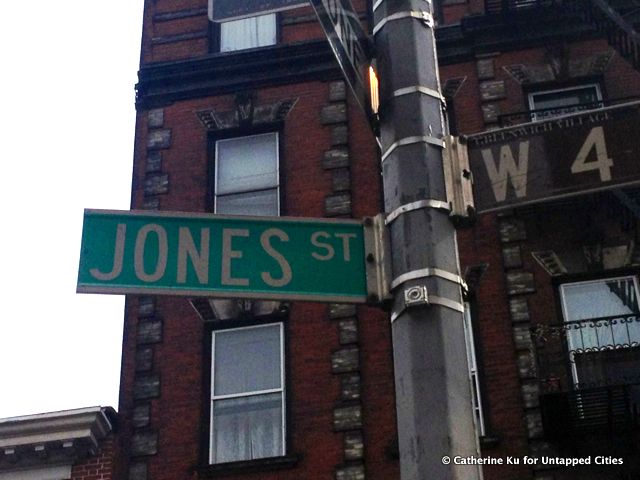
Today, Great Jones Street is home to an eclectic collection of shops and restaurants, a mix of both its gentrified roots and darker history. It’s also the annual site of the Annual Arab-American and North African Cultural Street Festival. Meanwhile, its rival Jones Street hasn’t received as much public attention. It still exists though, tucked in the West Village among giants West 4th and Bleecker Streets, and is mainly occupied by residential buildings. As for which street is “greater,” we’ll leave that for you to decide.
Read more from our History of Streets column. Get in touch with the author @catku.
Subscribe to our newsletter